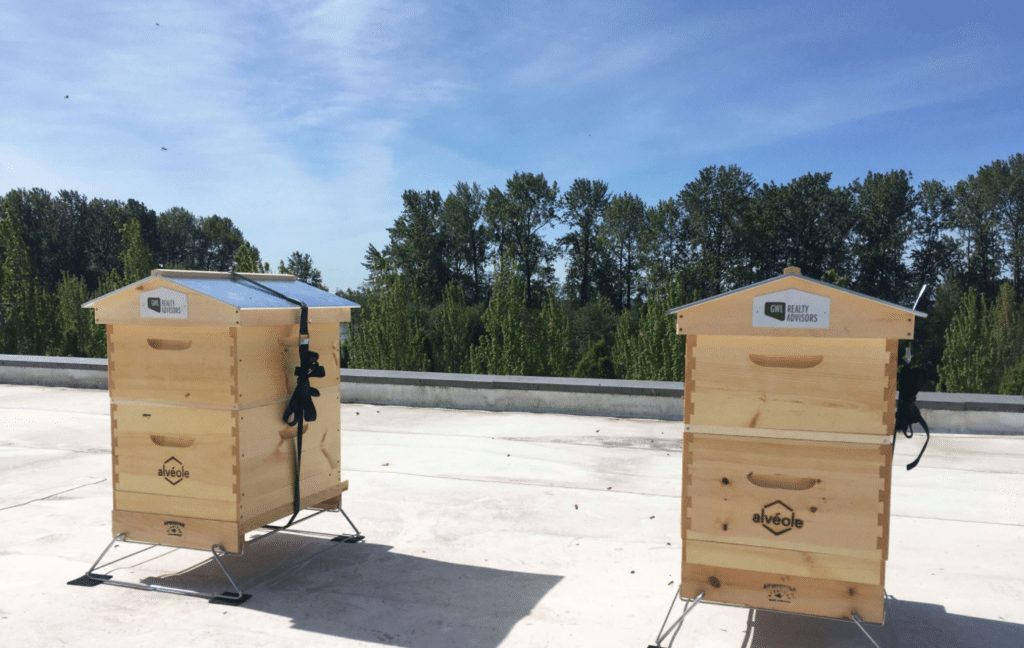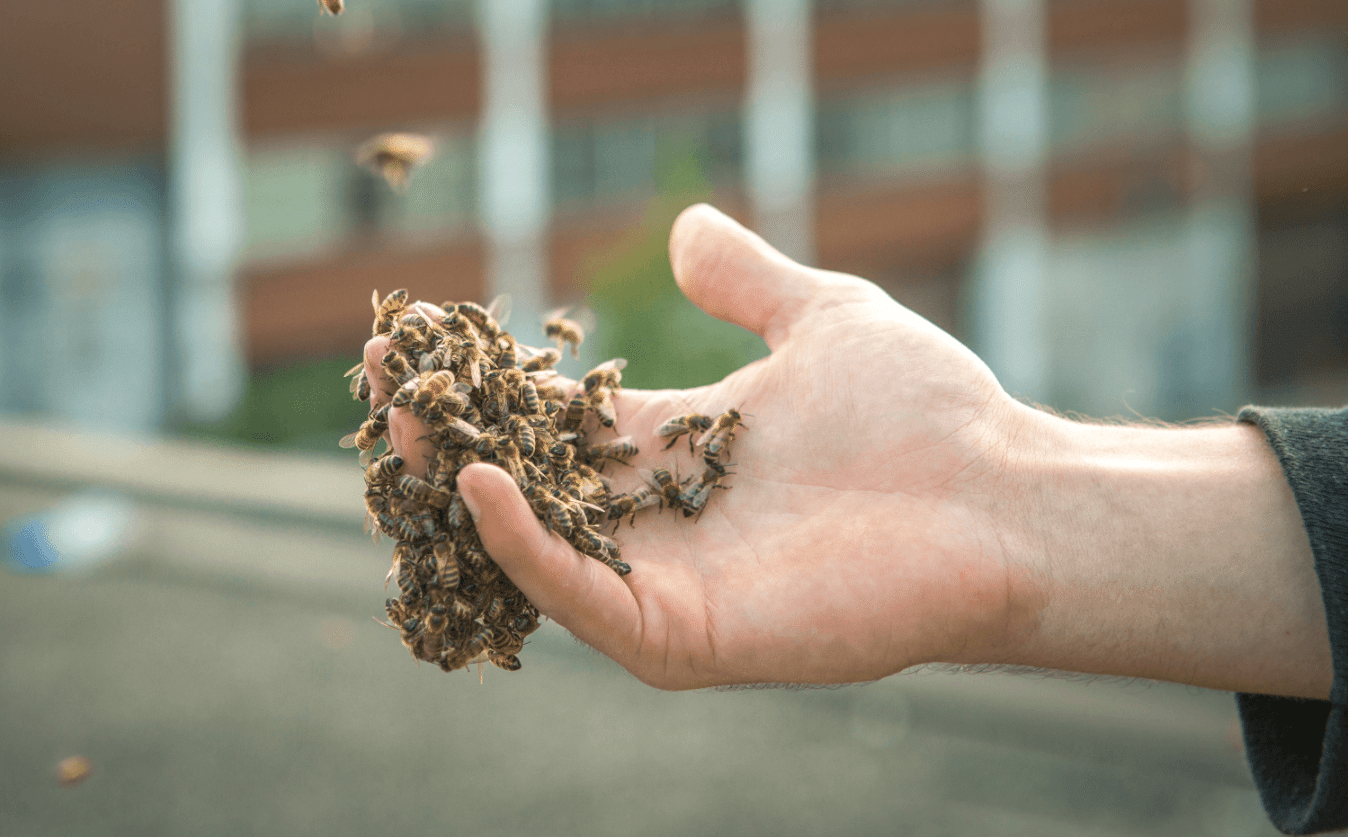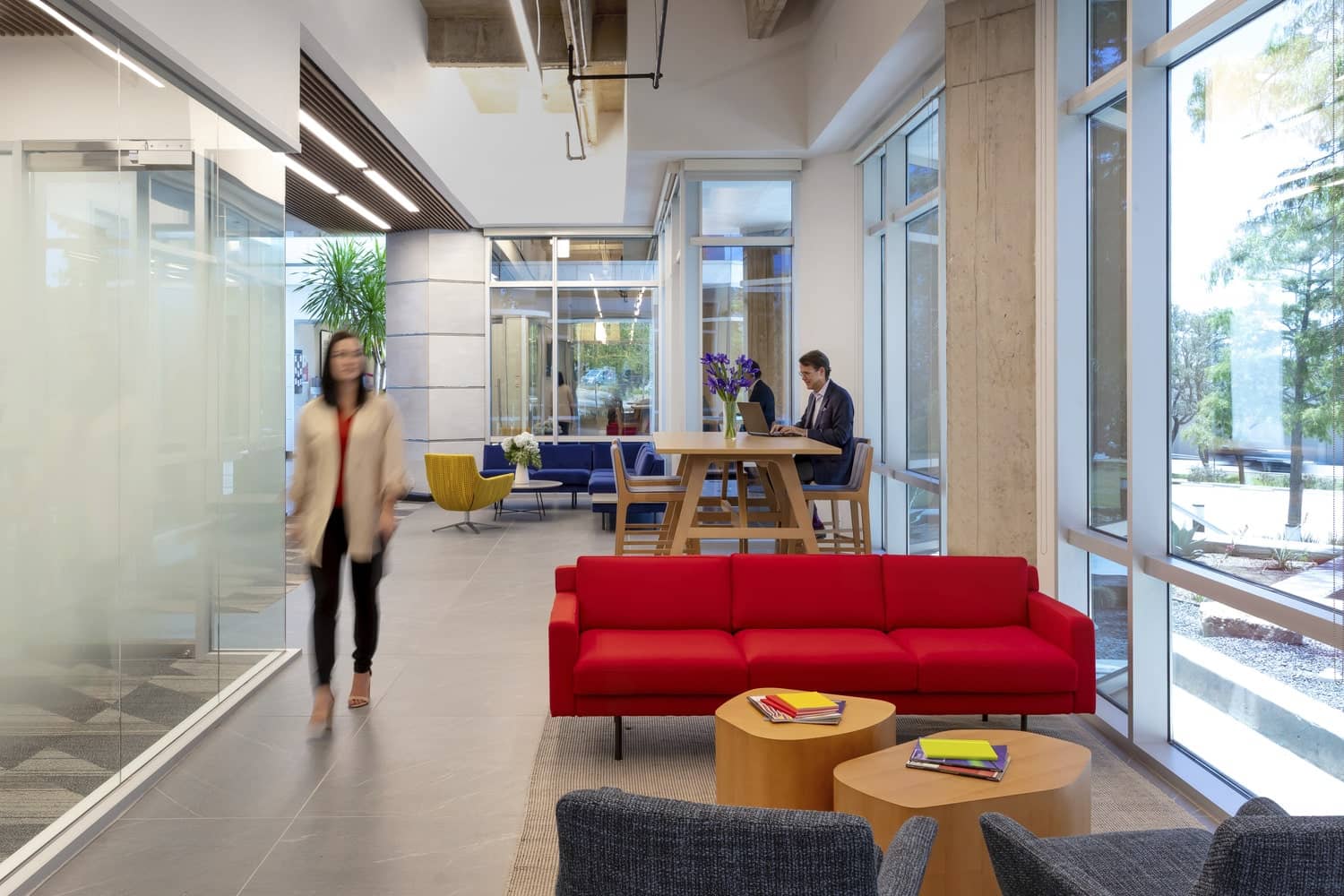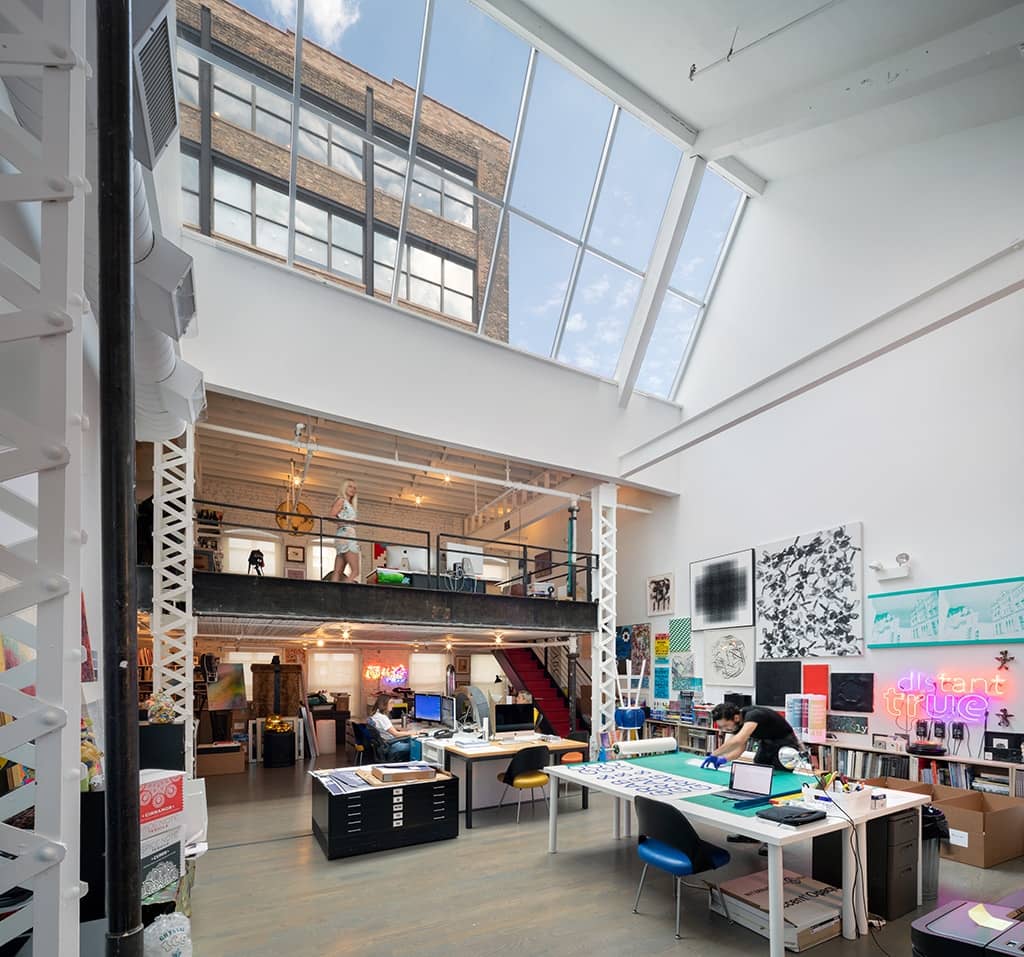Sustainability has been at the forefront of many commercial real estate (CRE) initiatives and building owners and operators are looking for creative ways to reduce their environmental impact. What many have discovered—including KBS—is that beekeeping is an effectively unique way to preserve urban green space that can also positively impact tenant relationships, retention, and overall perceived property value (think LEED credits and ENERGY STAR Ratings). It also generates critical awareness about the importance of bee populations and their vital role in the world’s food supply.
The installation of an urban beehive is quite simple. Companies like Alveole repurpose unused outdoor office building space such as on a rooftop, balcony, or courtyard to set up the hives where up to 50,000 bees can live. Since its inception in 2013, Alveole has engaged more than 50,000 people with bees and reports an annual client renewal rate of more than 90%. It is active in 14 major U.S. cities. At the beginning of the season, honeybees are brought to the site and Alveole visits the hives regularly for maintenance and to host unique, interactive workshops with tenants. At the end of the season, the honey is harvested and either shared with the building and its tenants or can be donated.

alveole.buzz/en/
Alveole is currently contracted at three KBS properties, including 1000 Continental in King of Prussia, PA; CrossPoint in the Wayne suburb of Philadelphia; and 3001/3003 Washington Boulevard in northern Virginia. Since partnering with Alveole, KBS has been able to offer unique programs to tenants surrounding the beehives. Tenant employees are able to join educational workshops that include:
- Learning About Bees – an introduction to honey bees and their role in the world.
- Meet Your Bees – working with a beekeeper where participants are able to safely walk-through a beehive inspection and see their bees in action.
- Honey Extraction – participants are able to work with their beekeeper to extract honey from their office-hive and take home a fresh jar of honey.
- The Wonders of Beeswax – participants work with their beekeeper to learn about beeswax in an interactive workshop by making candles from their hive’s beeswax while learning about centuries-old history of beeswax.
While COVID-19 has restricted in-person workshops, employees and their families have been able to watch live-footage of their beehives and still watch the monthly beekeeper maintenance.
In addition to exciting, interactive programs for tenants, each hive becomes specific to the community where it lives. For example, at 1000 Continental, the honeybee hive is located directly next to the Community Garden. This unique Community Garden does more than offer tenants a chance to grow and care for seasonal vegetables and plants, but year-round plants like lavender allow the bees to regularly feed and yield a flavorful lavender honey in the upcoming harvest. This double showcasing of living flora and fauna serves an aesthetic, as well as an educational component to the grounds that would otherwise be overlooked and underutilized. This differs from KBS’ CrossPoint property, where the hive is under pine trees in a bucolic glade— bringing both a different type of honey unique to surrounding landscape and a calm retreat for building tenants. Each beehive creates a unique-tasting honey depending on the surrounding flora and fauna.
With the hives offering a home to so many bees and being in fairly accessible areas, many worry about the possibility of bee stings – but there’s no need to fear honey bees. Unless threatened or provoked, most bees are docile and are generally uninterested in humans. Honeybees actually die after losing their stinger, so it’s not in their best interest to sting people or other animals. In fact, most tenants do not report noticing an increase in bees around the property as the hardworking bees are busy pollinating and taking care of their hive.
From KBS’ experience, tenants both in-person and via online correspondences, have been very positive and receptive toward their urban hives. Tenants have reported increased employee engagement and satisfaction, and appreciation for KBS’ commitment to both nature and local sustainability. To help keep the momentum going, KBS recently held a “Name the Queen” contest for building employees at each site that generated a lot of participation. The queen bees are now aptly named Queen Petunia at CrossPoint and Queen Beatrice at 1000 Continental. Future plans include online beekeeping workshops that can be accessed by all tenants.
Bees are critical to our livelihood and are responsible for pollinating more than a quarter of our food source. However, the recent rapid decline in the bee population has raised concern for these pollinators. Urban beehives represent a passionate effort to protect bees and the ecosystem, while also having a surprising impact on tenants who utilize this amenity to create a stronger corporate culture with lasting results.
To learn more about the latest industry trends and information, visit KBS Insights.




